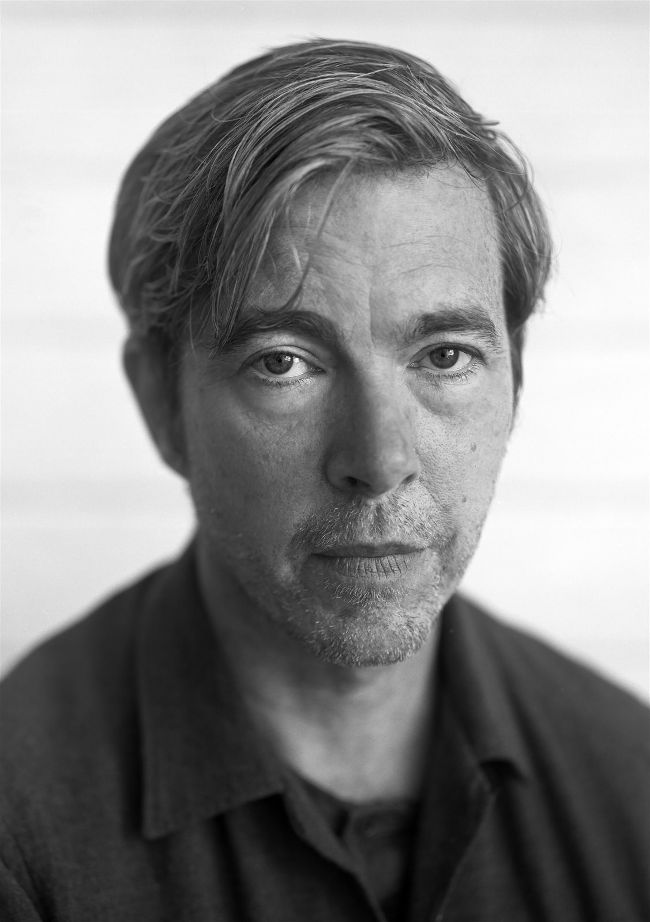THE MOJO INTERVIEW
He survived brushes with the French horn and Sham 69 to become one of America’s most lauded songwriters. But is he really as aloof as they say, or as mysterious? “I’m a simple man who likes making records,” insists Bill Callahan.
Interview by BOB MEHR

Portrait by BRYAN SCHUTMAAT
AVINTAGE MERCEDES STATION WAGON pulls up in front of MOJO’s Austin, Texas ho-tel, and the figure behind the wheel nods. At 56, Bill Callahan is like the car he arrives in, el-egantly weathered: a slim figure in faded work clothes, a rumpled baseball cap covering a head of silvering hair. Putting the car into gear, he says in a familiar low rumble: “I know somewhere we can go.”
For more than 30 years, Callahan has been one of indie rock’s enduring enigmas. Emerging at the dawn of the ’90s under the name Smog and establishing ties with Chicago label Drag City, he would pair the bruised romanticism of his lyrics with a searching musicality, moving from chamber pop to motorik chug, slinky Afro-beat to dreamy Americana. Yet, despite noted romances with fellow artists Cat Power and Joanna Newsom, Callahan has maintained an inscrutable public profile, eschewing conventional music biz image making and promotion, and keeping the focus squarely on his songs.
In 2011, he met filmmaker Hanly Banks, who began working on a documentary about him. They eventually married and began a family just as Callahan approached 50. “I loved mu-sic so much, I thought if marriage or a family doesn’t happen, fine, I’ll just keep making re-cords,” he says today. “But I always kept myself open to the possibility if I met the right person.”
A five-year break from 2013-2018 followed – an almost unthinkable gap between albums for the typically prolific Callahan – as he recalibrated his priorities. The couple now have two children, a seven-year-old son and a one-year-old daughter. Neither, he says, seems particularly interested in his music: “If I pick up a guitar in front of my son he’s like, ‘No, don’t play that.’”
Callahan’s own parents both worked as language analysts for the US Department of Defense, work that based them for a time at a listening station at RAF Menwith Hill and later Knaresborough, both in North Yorkshire. The singer’s mother passed in 2018 from cancer, and his father, he notes, is succumbing to dementia. “It’s a long, slow, painful thing to witness,” he says. “He still recognises me. But I know in a few months he might not.” Themes of children growing, parents dying, the global pandemic and a kind of Zen ex-istentialism inform the songs on Callahan’s latest album, Reality.
Seated at a low, Japanese-style table outside a local vegan restau-rant, Callahan unveils the map of his life. Despite his reputation for reticence, he talks freely and laughs easily, as he details his metamorphosis from painfully shy music fan to one of America’s foremost song-writers. “Once I decided music is what I’m do-ing for the rest of my life, I didn’t really doubt that I could,” he says. “I just knew it had to be.”
WE’RE NO TWORTHY
Iggy Pop on a favourite current lyricist.
“Bill Callahan just pops out. He’s undertaken to make sense of his life. He’s settled down to have a kid and get married and he’s come back and written beautifully about it. He has a nice song called Writing, where he goes, ‘Sure feels good to be writing again...’ I think everyone can relate to that.”
Was there a lot of music in your house growing up?
I remember listening to the radio with my mother in the kitchen when I was too young to go to school. It was Carole King, Carly Simon, and “I drove the Chevy to the levee”… that song [American Pie]. I remember singing “Chevy to the levee” and not knowing what a levee was. I’m the youngest of three. My one sister, her and her friends, they were big into new wave and punk so they would come over play records and I got to hear a lot of things that way. My other sister is a singer and a songwriter. She’s made, like, 10 albums. So I grew up with her singing John Denver songs in her bedroom.